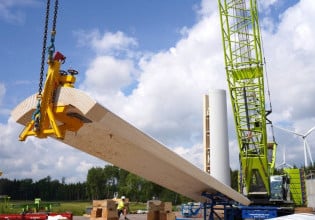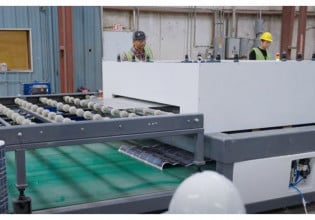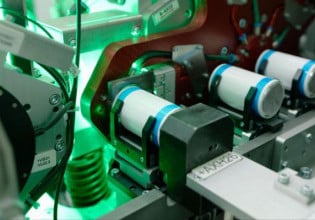Safer, Faster Method Found for Recycling Lithium-ion Batteries
A research team from the Institute of Chemistry of the Chinese Academy of Sciences has pioneered a safer and more efficient lithium recovery method that will support lithium-ion battery recycling.
The push toward sustainable energy creates impressive growth in the electric vehicle (EV) market. As the demand for EVs grows, so does the need for lithium-ion (Li-ion) batteries and an efficient battery recycling method.
Lithium-ion batteries awaiting recycling. Image used courtesy of Adobe Stock
EVs will play a significant role in the shift to greener and cleaner forms of transportation, but the lithium demand created by the EV boom leads to another set of problems. While recycling Li-ion batteries can save resources, conventional recycling methods can pose fire risks and other dangers. Now, researchers at the Institute of Chemistry of the Chinese Academy of Sciences have developed an alternative method to make Li-ion recycling safer.
EV market projections up to 2036. Image used courtesy of Global Data
Lithium and Environmental Concerns
Lithium mining is an energy-intensive process, and there are concerns not only with lithium extraction and disposal but also other environmental issues, such as the depletion of water resources.
South America is home to the Lithium Triangle, which holds more than half the worldwide lithium supply. Some regions have already faced serious challenges due to increasing lithium demand. In Chile, the agriculture industry had to confront a water shortage because over 65 percent of water in that region was being used for lithium extraction.
Lithium is not a magic bullet that evades environmental problems as it replaces fossil fuels, and so it is imperative to develop efficient, clean, and affordable recycling methods. Without clean and affordable lithium recycling, this resource will create another cascade of challenges that must be addressed.
The Challenges of Li-ion Recycling
Recycling Li-ion batteries is a complicated and expensive project, and there are ongoing efforts to improve recycling methods. Thermal processes have often been used for Li-ion battery recycling, but unfortunately, there is an approximately 40 to 50 percent limit on how much of the valuable resources within the batteries can be recovered.
Typically, researchers have focused on extracting lithium from the cathode of the battery, where much of it remains when the battery is discharged. The process can include several steps, including collecting cathode particles, pressurizing those particles in a heated alkaline solution, and facilitating an annealing process during which the particles are heated to 800 degrees Celsius and then cooled slowly.
In contrast to cathode extraction, anode extraction is more efficient, but there are other drawbacks. Safety is a key concern because of the increased risk of fires and explosions when aqueous solutions are used in the leaching process.
Minimizing the Risks Associated with Anode Extraction
To help manage the safety risks when working with anodes, a team of researchers at the Institute of Chemistry of the Chinese Academy of Sciences has developed an alternate method that avoids the high reactivity associated with aqueous solutions.
Rather than relying on water, Yu-Guo Guo, Qinghai Meng, and their team used aprotic organic solutions, which do not facilitate hydrogen formation, thus avoiding the most unstable element of the extraction process. These organic solutions are made with a polycyclic aromatic hydrocarbon (PAH) and an ether as the solvent. Such components create an efficient and manageable extraction process no longer prone to fires or explosions, and it is also affordable without producing any new sources of excess waste.
This method of lithium extraction from Li-ons is a step that will improve the safety, efficiency, and accessibility of Li-ion recycling. EVs have the potential to exert a substantial positive impact on carbon emissions worldwide, but only with viable Li-ion recycling protocols. Innovations like this one will help maximize the potential of lithium batteries and minimize fiscal and material waste.








